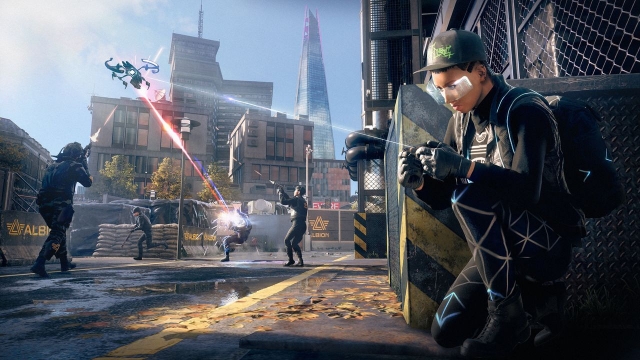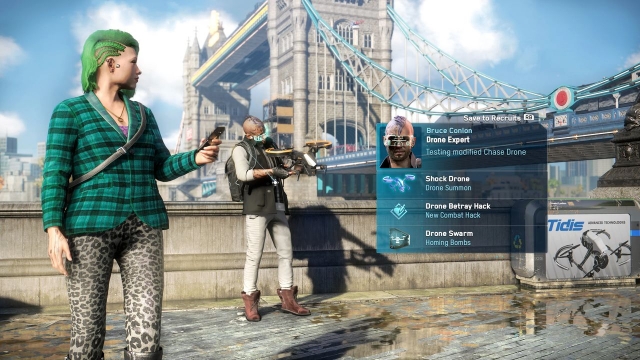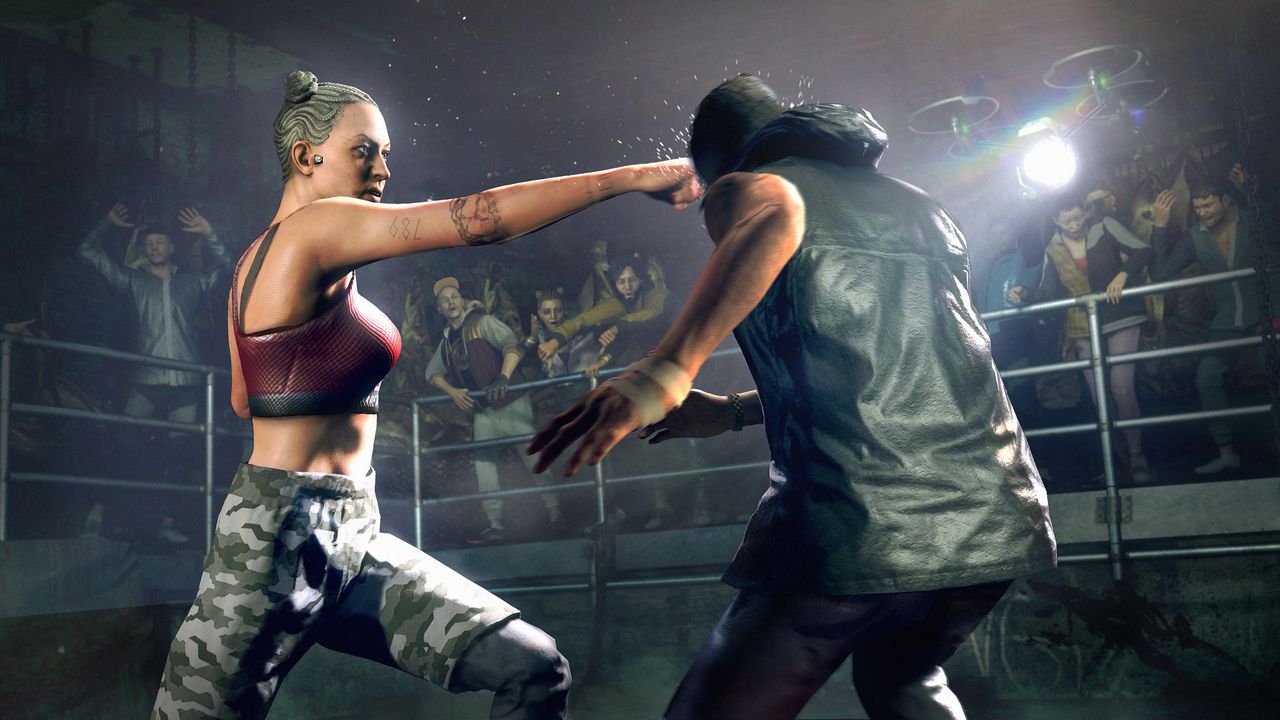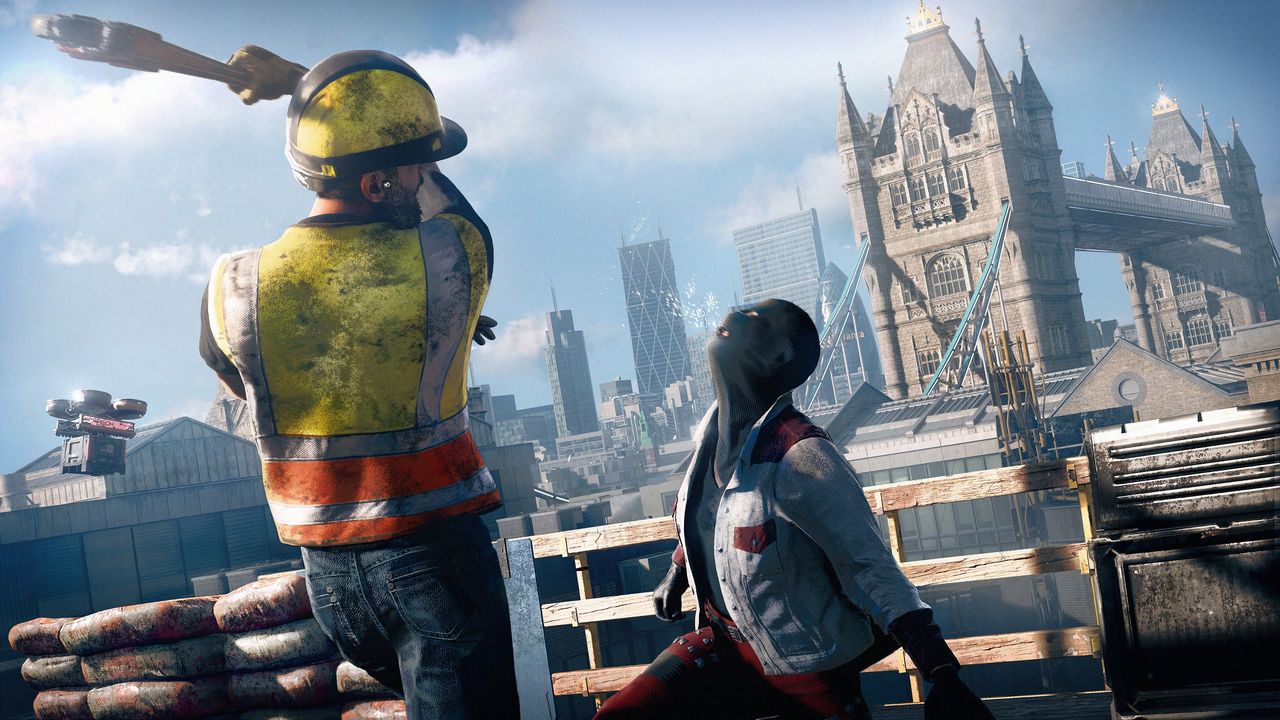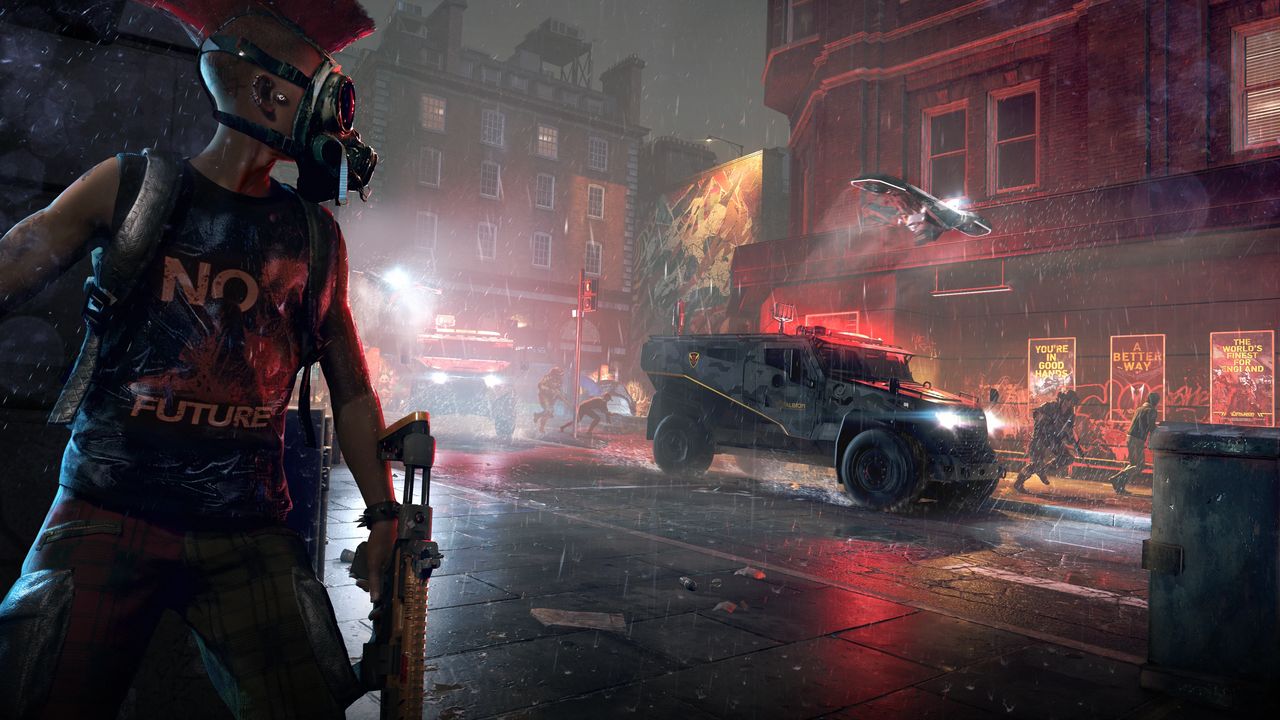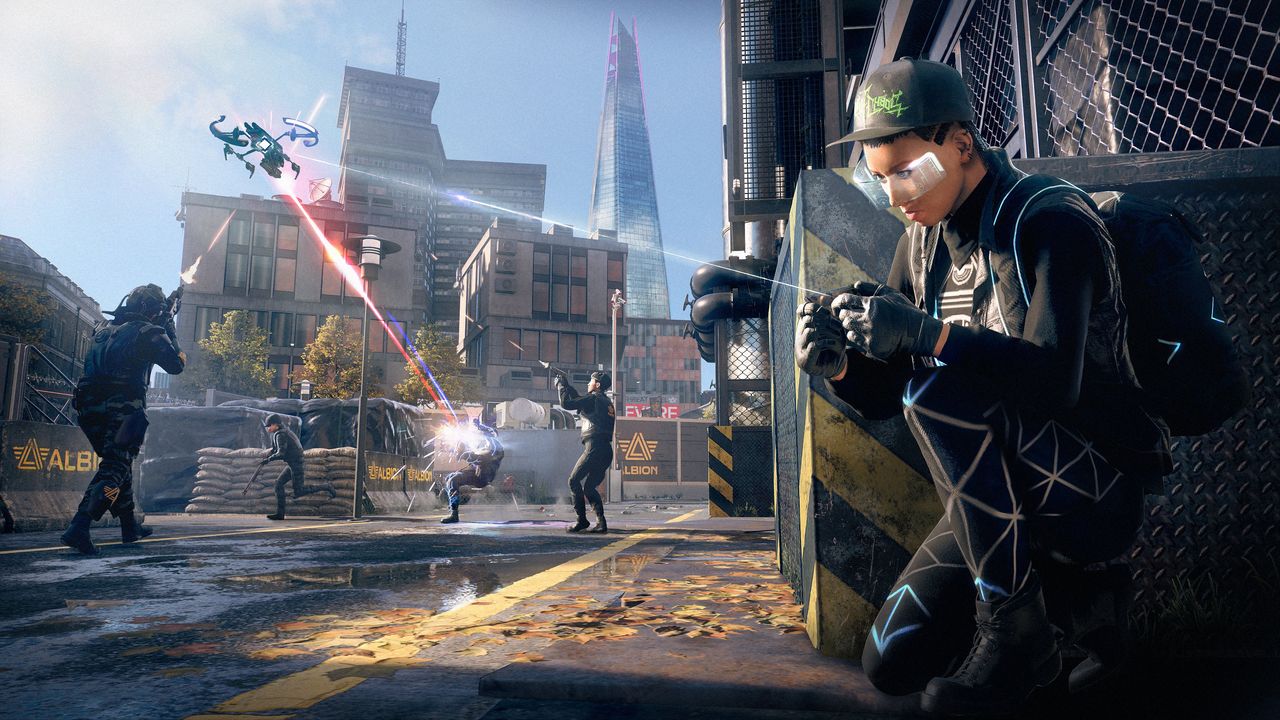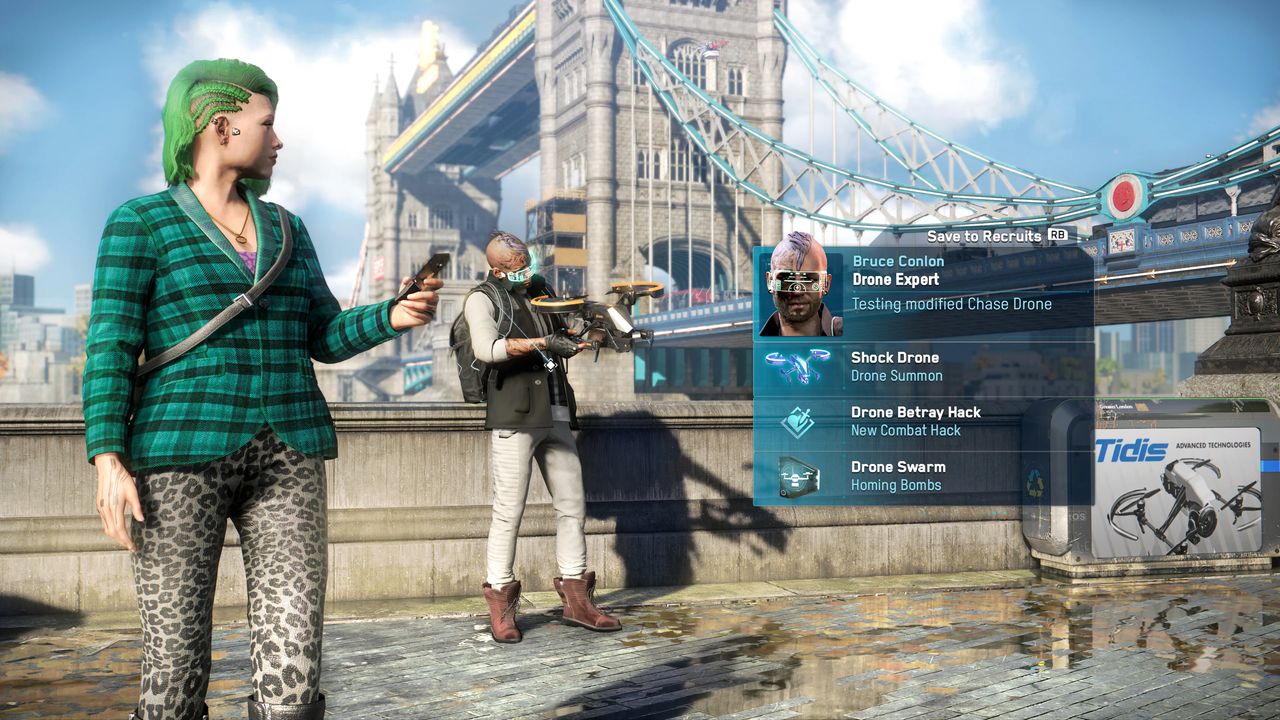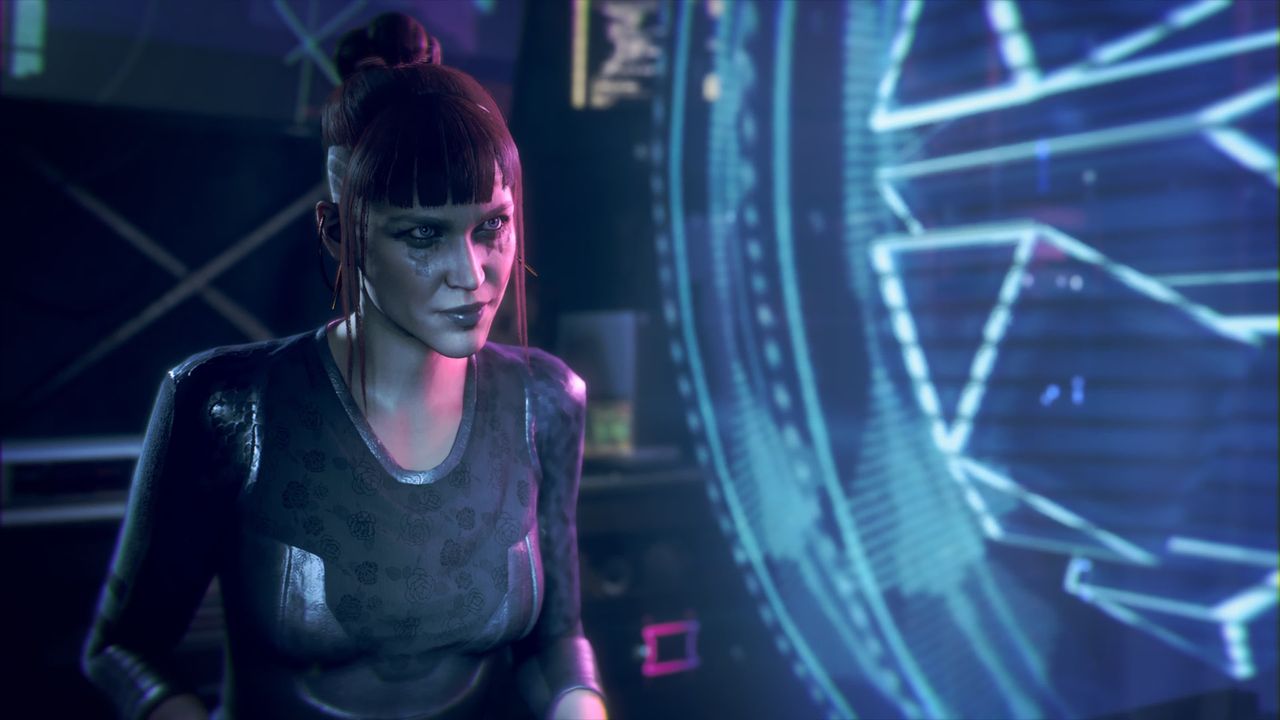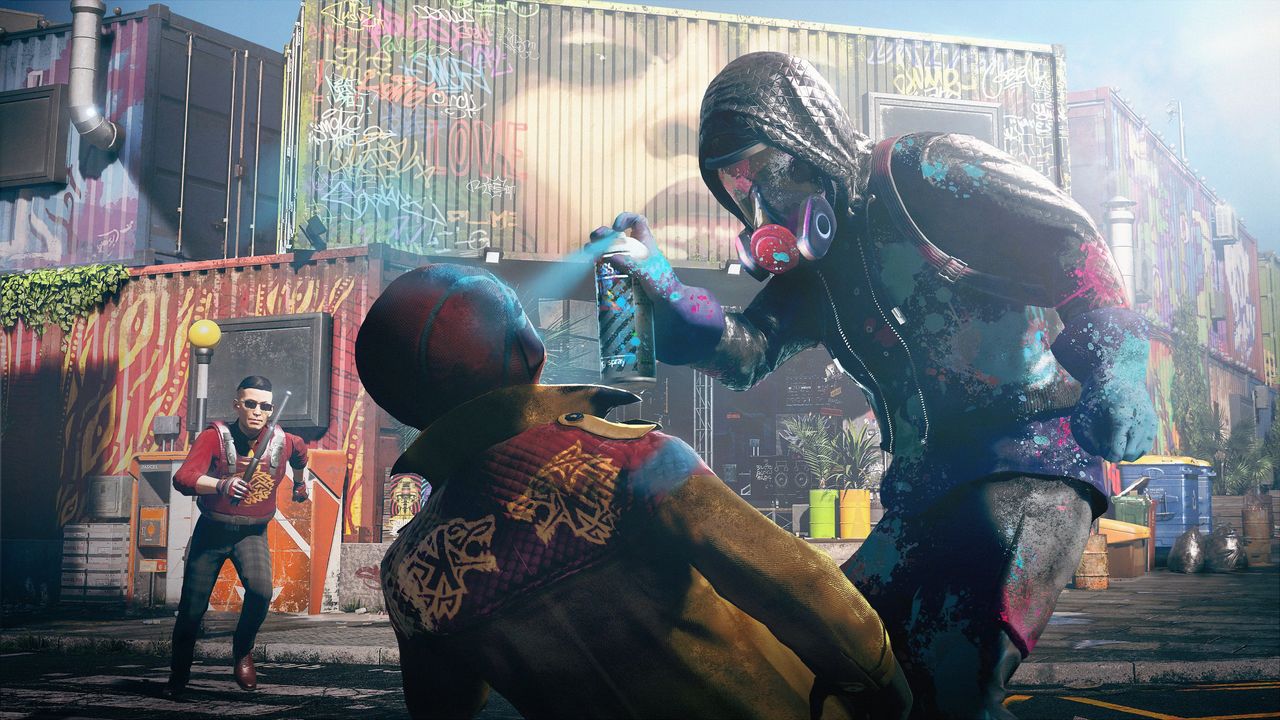Watch Dogs: Legion
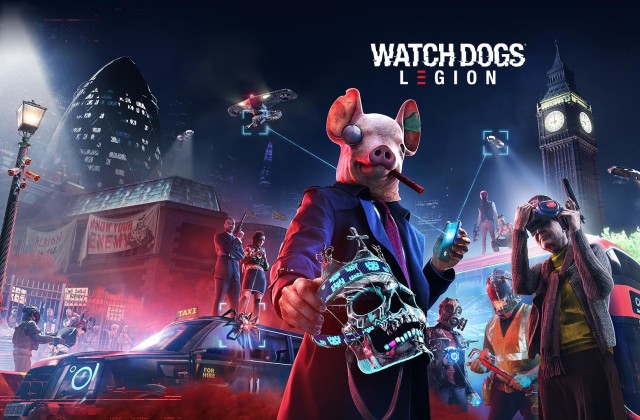
Watch Dogs, as a franchise, is a story of almosts. The first game feels like it was almost an interesting if occasionally goofy stealth/action game trapped inside what was already a fairly standard sort of Ubisoft open-world experience; the second was a big improvement, with a likeable protagonist and supporting cast, but the combat was the worst part, and it kept trying to emphasize it.
Now we have Watch Dogs: Legion, which has a genuinely interesting central mechanic, and which does some cool things with it. You aren’t stuck as a single central figure anymore, but instead, can recruit a “protagonist” from almost any random person you run into on the streets of a near-future, dystopian London.
About twenty minutes from now, the hacktivist group DedSec fails to stop a series of widespread terrorist attacks on London, and are framed for them by a hacker calling him/her/itself Zero-Day. Several months later, DedSec has been almost totally wiped out by vengeful British police, and factions within the UK have seized the opportunity to place the city under martial law. The Queen’s missing, the cops have been replaced by a for-profit mercenary outfit called Albion, and a bunch of Irish transplants are suddenly running most of the crime in the city.
The last free DedSec member, Sabine, emerges from hiding with an axe to grind, and begins to rebuild DedSec almost from the ground up. The first person she approaches is your first playable character. As any of a steadily-growing number of similar operatives, ranging from ordinary pedestrians to spies and assassins, you set out to free London, find out who’s really behind the bombings, and track down whoever Zero-Day is.
Legion feels like it’s got a lot of DNA from Ubisoft’s 2012 survival-horror game ZombiU, but unlike that game, your characters in Legion aren’t voiceless ciphers. Instead, whoever you’re playing as gets a voice and a personality, even in cinematics. You really are picking someone to be your protagonist, rather than recruiting a procession of cannon-fodder avatars, and that’s genuinely pretty cool.
The unfortunate part is that Legion is also stuck into that very 2010s mentality where it’s trying to avoid any possible failure states. It actually also reminds me of Deus Ex: Human Revolution, in that any character you recruit, regardless of their actual stated abilities, is always automatically competent in every skill set that Legion calls upon. Every new DedSec operative, from housewife to hitman, is a solid hand-to-hand fighter, stunt driver, crack shot, and infiltration expert, equipped with a magic DedSec phone that does most of the hacking for them. It takes away a lot of necessary texture.
This would’ve been a better game if you actually needed to have a deep bench at DedSec, because not every operative can do everything you need to do. Instead, you basically just need one person to be your “protagonist,” a couple more for certain specific story objectives, and maybe a few extra in case you screw up and get your current operative arrested. There’s an intricate set of systems in place around Legion’s operatives, where you’re clearly meant to want to dial in specific perks to assist and reinforce your style of play, but you can usually make do perfectly well without them.
The rest of the game is reasonably solid action in the tradition of the Watch Dogs series up until now. You use stealth, gadgets, and hijacked electronics to trap, stun, and whittle down enemies in a procession of hostile locations. The city’s full of hidden caches, collectibles, side missions, and weird minigames. You can find and spend Tech Points to unlock new weapons, gadgets, and infiltration options, and just like WD2, an astonishing number of your problems get solved the moment you acquire your own friendly Spiderbot pal.
It’s worth saying that while I appreciate your DedSec operatives not being MMORPG-style silent avatars, the tradeoff is that they’re all just sort of generically enthusiastic protagonists. Their motivations are all to save London, because London needs saving. It’s not bad, but it means the story is entirely plot-driven throughout.
I like to make fun of Aiden Pearce, the dollar-store Batman of the first Watch Dogs, but at least his story had personal stakes. There was a reason why we were playing as him, and not anyone else. The same was true of WD2‘s Marcus Halloway. The games might have meandered, but they were thoroughly character-driven, and the absence of that feels strange in a big, multi-hour open-world experience.
Watch Dogs: Legion isn’t a bad game in the traditional sense. It’s not buggy, the controls are fine, the map is big, the concept is cool, it’s got some fun dialogue, and it feels incredibly apt for this particular moment in time. It can’t possibly have been deliberate on Ubisoft’s part, but Legion feels perfectly aligned with this moment in history; some of its dialogue has that trademark Ubisoft clunk to it, like when a recruit calls his DedSec-branded implant a “red pill” (check Urban Dictionary next time, guys), but this is a great time to be fighting complicit cops and reactionaries.
Legion’s biggest problem is that it’s boring: its central mechanic is effectively meaningless, which just leaves you piloting a generic character through yet another Ubisoft-styled open-world. Legion will likely find some fans, but as seems to be the curse of the Watch Dogs series, it’s watered itself down so much in an attempt to appeal to as broad an audience as possible that it’s lost all its texture. If a bad open-world game is an oversalted omelet, Watch Dogs: Legion is plain oatmeal.
Reviewed By: Thomas Wilde
Publisher: Ubisoft
Rating: 70%
——————————————————————————–
This review is based on a digital copy of Watch Dogs: Legion for the PC provided by Ubisoft.
 Game Over Online
Game Over Online